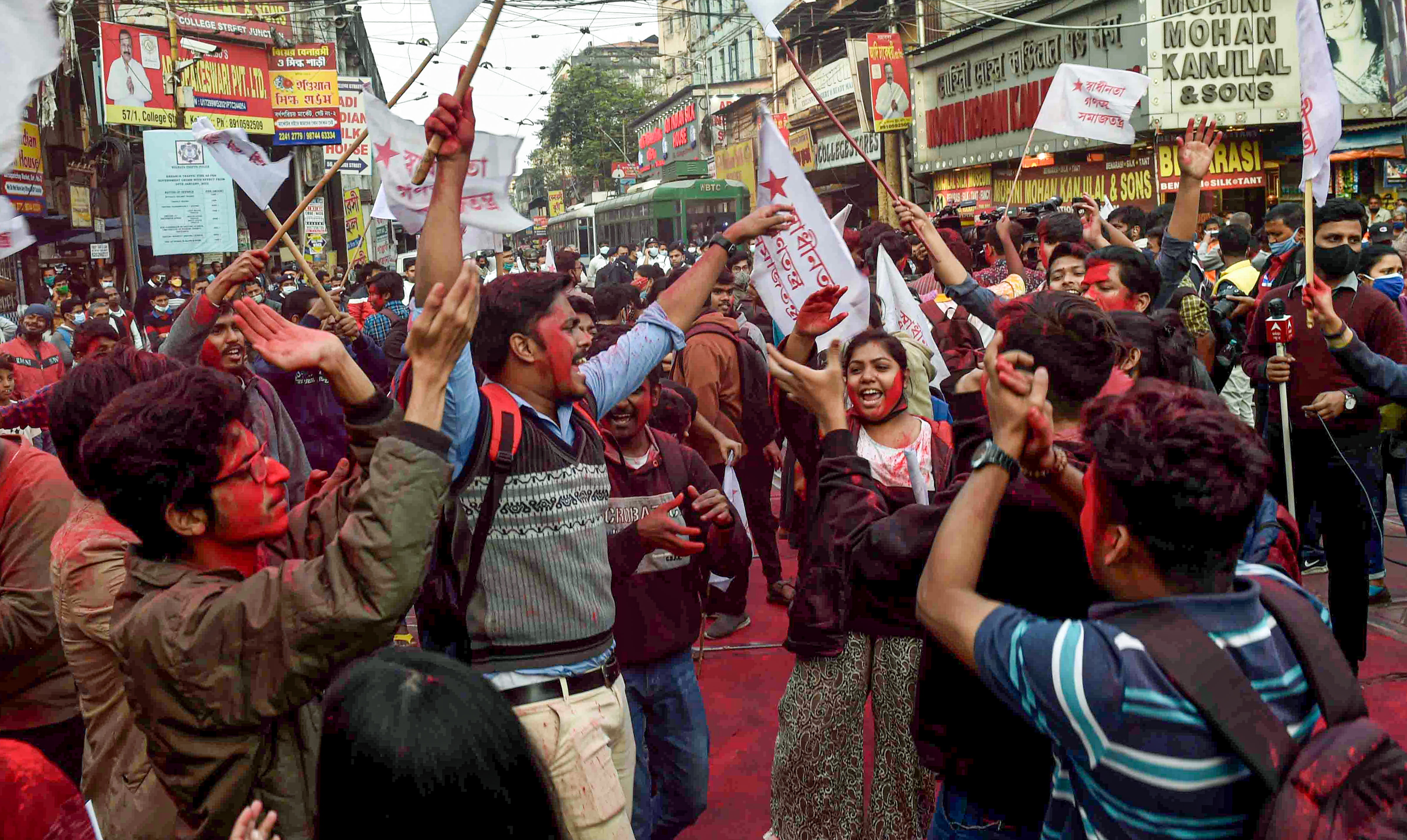
From our correspondent
DIFFERENT studies conducted by UNICEF, at different times, during the last two years after the breakout of the pandemic, have shown over and over again that reading, writing and arithmetic skills of children are being severely disadvantaged because of prolonged closure of schools, and this was adversely affecting their path to progress. Not being able to attend schools regularly was not only affecting their academic progress but was also taking a heavy toll on their somatic and psychological well-being.
Schools remaining closed for indefinite period of time has also affected the health of children and many are suffering from severe malnutrition. Nutritious food that is served to the students through the mid-day meal scheme was either stopped during the pandemic or had become exceedingly irregular. West Bengal government was able to save about Rs 2,100 crores allocated for mid-day meals because schools remained closed. National Multidimensional Poverty Index 2021, published by Niti Aayog, has shown clearly the horrible picture of lack of nutrition, health and education in the country. In a circumstance like this the worst affected are the girls, the number of child marriages has increased by leaps and bounds.
While, along with the rest of the countries world-wide, most of the states in India, heeded the counsel of the UNICEF and WHO and began the process of opening schools, the government of West Bengal remained astonishingly indifferent.
In this backdrop, SFI West Bengal launched a state-wide movement demanding the opening of schools, colleges and universities. Student activists have been making these demands immediately after the country recovered from the second wave of the pandemic. Continuous and regular movements were held in different parts of the state. Besides adopting various innovative methods of exerting pressure on the state government, the activists carried on a rigorous campaign on various social media platforms.
The state government started feeling the heat of the relentless campaign of the SFI activists but remained adamant in not opening the educational institutions. It was then that the young activists decided to strike hard. It was decided that regular meetings, demonstrations and other programmes would be held between January 23-30 and they would hit the streets on the 31st.
On January 24, SFI activists had tried to submit a memorandum, demanding the resumption of physical classes, to the minister-in-charge of education, Bratya Basu. SFI general secretary, Mayukh Biswas, SFI WB state secretary, Srijan Bhattacharya, and president, Pratikur Rahman, and other leaders were present at the gathering. A huge posse of policemen manhandled the twenty-odd protestors who wanted to meet the education minister and submit their charter of demands. They were lathicharged and later dragged inside police vans and taken to the Bidhannagar Noth Police Station.
On January 27, offline classes were held in front of different schools, colleges and universities in every nook and corner of the state. Covid appropriate behaviour was strictly adhered to in these classes. School teachers and college and university professors taught students in these classes.
SFI held rallies, road blockades, and meetings in every block of the state demanding the opening of all educational institutions immediately. Hundreds of SFI activists courted arrest while demonstrating.
The movement which was building up over the last one week reached its highpoint on January 31. As the day progressed, the activists began their civil disobedience movement at Dumdum, Barasat, Chinsura, Bolpur, Alipurduar and other parts of the state. Road blockades were put up. SFI took put a procession in front of the campus of the Calcutta University from where they were dragged away by the police. At Barasat, clashes broke out between the SFI activists and the police. Later the police lathicharged the protestors. Disregarding the atrocities unleashed by the police, the activists set aside the barricades put up by the police and entered the district magistrate’s office to submit their charter of demands. Near the Dumdum airport protestors squatted on the road and began their blockade bringing the traffic to a standstill.
SFI members of the Vishwa Bharati University have been campaigning for the resumption of classes. Students held demonstration in front of the main office of the university. They went to submit their deputation to the vice-chancellor but were stopped midway by the security guards who closed the gates. The activists then snapped open the wire fence and scaled the wall. The demonstration then continued in front of the vice-chancellor’s office.
Faced with this relentless, unyielding movement of the student activists of SFI, the chief minister had to accede to the demand of opening schools. Only a couple of days ago, the state advocate-general, Shoumendranath Mukhopadhyay, in his reply to the High Court’s query had asked for two weeks’ time to open schools. On January 31st evening, the chief minister while addressing a press conference declared that classes would resume from February 3.
That determined and unflinching movements can bring the desired result and can force dictatorial and autocratic administrators to their knees has been proved one more time.


